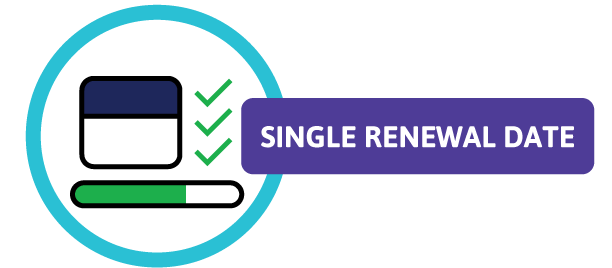Heavy Rain Causes Floods and Landslides Across BC – Accessing Medications and Providing Continuity of Care
Heavy rain over the weekend and into Monday has caused significant flooding and mudslides across southern British Columbia, resulting in a number of evacuation orders as well as highway and road closures.
With thousands of residents under evacuations orders, and many communities currently under flood watch or flood warning, registrants are reminded that patients who have been displaced by an evacuation can visit a pharmacy to access an emergency supply of medications they may need. Under the College’s Emergency Supply for Continuity of Care policy, pharmacists may use their professional judgement to determine if they can safely provide patients with an emergency supply.
Pharmacy managers are reminded of their responsibility to notify the Registrar in the event of an unanticipated pharmacy closure, as outlined in both the College’s Temporary Pharmacy Closure Policy and Section 18(2)(dd) of the Pharmacy Operations and Drug Scheduling Act (PODSA) Bylaws.
Information for Patients
ACCESSING MEDICATIONS YOU MAY NEED
If you have been displaced by an evacuation, you can visit a pharmacy near you to access an emergency supply of medications you may need. Under the College’s Emergency Supply for Continuity of Care policy, a pharmacist may use their professional judgement to determine if they can safely provide you with an emergency supply. The College’s Find a Pharmacy tool can help you locate a pharmacy in the community where you are staying.
VISITING YOUR PHARMACY
Please continue to take the necessary precautions to help prevent the spread of COVID-19 and avoid visiting a pharmacy in person if you are unwell or self-isolating.
If you are feeling unwell and require medications, CALL your pharmacy and they will arrange to safely provide you with any medications you may need.
Avoid entering a pharmacy if you exhibit any of the following symptoms identified by the BC Centre for Disease Control or you are required to self isolate due to travel or other potential exposure to COVID-19.
Many pharmacies provide delivery services which can help patients – especially those who are most vulnerable to COVID-19 – avoid visiting a pharmacy in-person.
You can also arrange to have someone to pick up their medications for you.
Learn more at: bcpharmacists.org/COVID19
Information for Registrants
UNANTICIPATED PHARMACY CLOSURES
The need for an unanticipated pharmacy closure may arise in unforeseeable situations where, for instance, a state of emergency has been declared, or evacuations orders have been issued, and the pharmacy becomes temporarily inaccessible to the public.
Professional Practice Policy – 46: Temporary Pharmacy Closures (PPP-46), as well as Section 18(2)(dd) of the PODSA Bylaws, outlines what’s expected of pharmacy managers in the event that they are faced with an unanticipated closure of their pharmacy.
PROVIDING CONTINUITY OF CARE DURING AN EMERGENCY
Professional Practice Policy 31 – Emergency Supply for Continuity of Care outlines what’s expected of pharmacists when providing patients with an emergency supply of prescription drugs for continuity of care in exceptional circumstances in accordance with the Pharmacy Operations and Drug Scheduling Act Bylaws section 19(7)(d).
The policy provides broad latitude for pharmacist decisions on emergency supplies, provided it is in the patient’s best interest and all decisions are properly documented with rationale.
Drug shortages during state of emergency
We would like to remind pharmacists of their expanded authority to adapt prescriptions during the COVID-19 public health emergency, which still applies. The Amendments To Professional Practice Policy-58 Medication Management (Adapting A Prescription) removes the limits on drug categories for therapeutic substitution where there is a drug shortage.
The Ministry of Health is aware of reports of localized drug shortages resulting from recent flooding and is closely monitoring the supply chain and working closely with distributors to resolve logistics issues.
- See information for from PharmaCare on Patient Care During States of Emergency and Evacuations.
-
See PharmaCare guidance on Smaller Dispenses and Emergency Supplies During States of Emergency.
Health Canada has also implemented new temporary recordkeeping and signatory requirements for controlled substances, to improve the movement of medications. Please see their Controlled Substances Bulletin, Requirements for the movement of controlled substances in flood-stricken areas in British Columbia.
PharmaNet also plays an important role in supporting continuity in care by allowing a pharmacist to review a patient’s prescriptions and medication history regardless of what pharmacy a patient typically uses.
Pharmacy professionals and patients can also contact the First Nations Health Authority at 1-855-550-5454 (Extension 2 then Extension 4) for benefits information and to verify patient identification information.
|
For additional information and guidance on how to prepare for an emergency, please visit: |
Questions
For questions related to providing continuity of care for patients during a state of emergency, contact the College’s practice support at [email protected].
Pharmacists and patients can also contact the First Nations Health Authority at 1-800-317-7878 to verify patient identification information and for NIHB billing purposes.
Additional Resources
- Emergency Info BC – Current Flooding Information
- Emergency Map BC
- Emergency Info BC – Emergency Support Services (ESS)
- BC River Forecast Centre – Flood Warning and Advisory Notifications
- Public emergency preparation and recovery (BCGov)
- Build an emergency kit and grab-and-go bag (BCGov)
- Make your emergency plan (BCGov)
- Drive BC – Traveler Information System
- Benefits Information (FNHA)

 Share
Share


